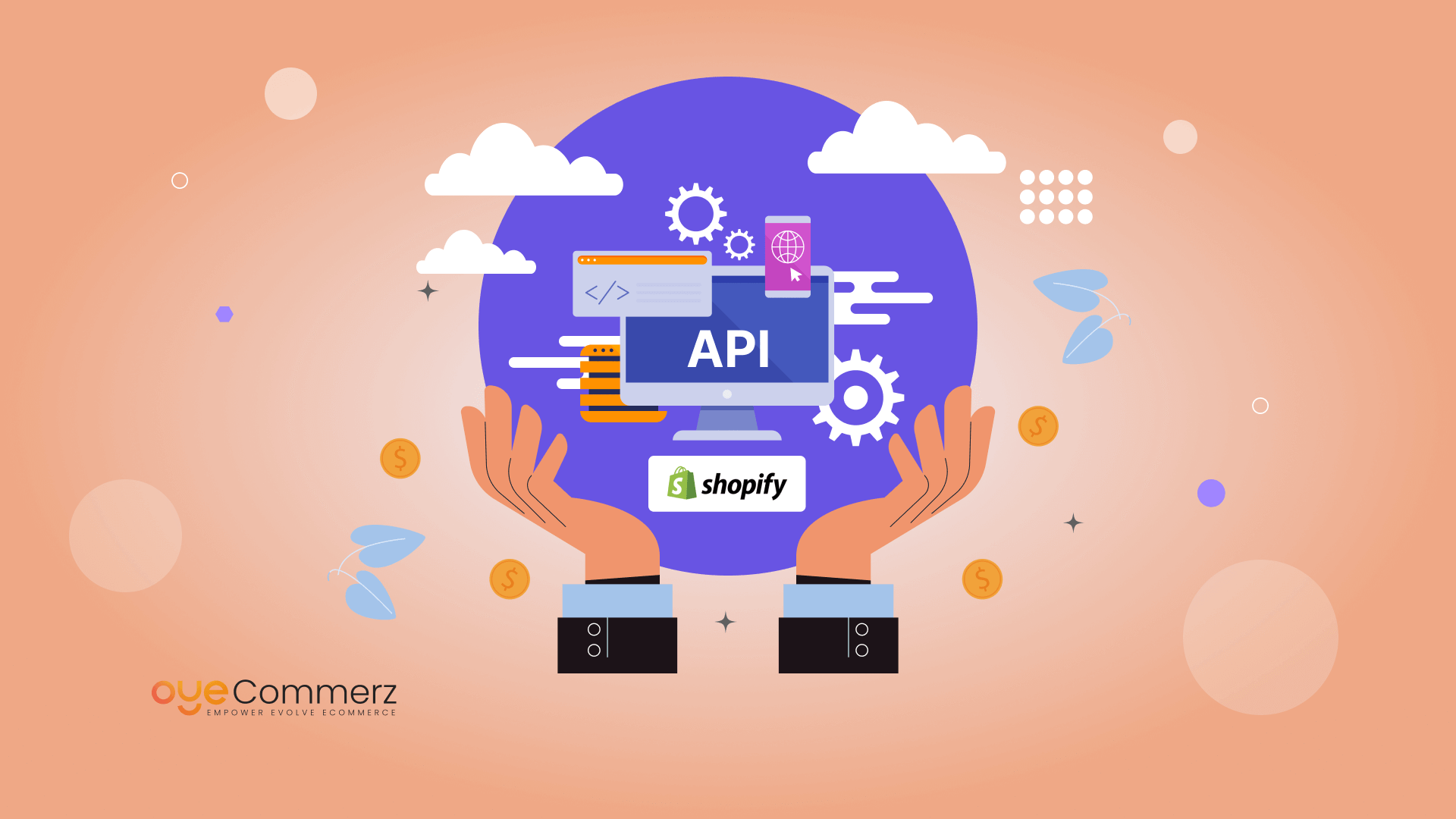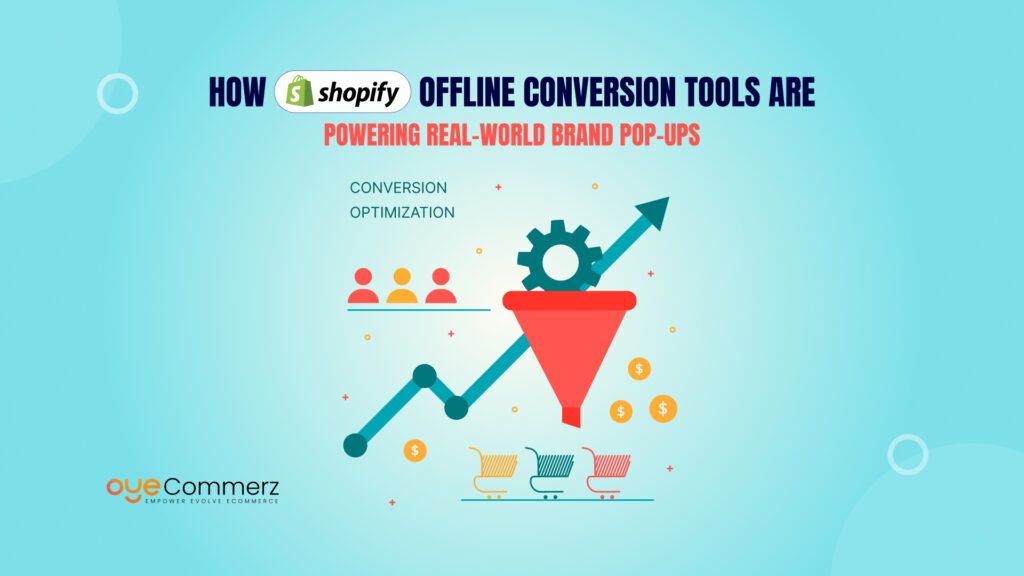With eCommerce evolving with time, business owners, therefore, experience challenges like selling across multiple channels, restocking, order fulfilment, and customer satisfaction. If not well managed, these duties can become very hectic, especially as the store gains popularity and receives larger traffic.
Table of Contents
ToggleThat is where Shopify API integration steps in to be of help. Through API, Shopify offers disconnection flexibility and strong functionality where merchants can integrate stores with third-party apps, custom solutions, and other systems to run their businesses. When implemented well, the API equally works not only to complete the monotonous tasks but also to improve the experience of the end consumer. In this article, we look at the advantages of Shopify API and how it can assist your business in maintaining its competitive edge in today’s market.
Shopify API: What It Is and Why It Matters
- In brief, the Shopify API comprises programming means by which developers can communicate with the Shopify environment. This API allows businesses to retrieve data automatically, submit orders, modify details of products, and perform many other functions without the aid of humans. The features of the Shopify API interface include customers API, products API, orders API, and inventory API among others. Application programmers can create their interfaces to connect the store to other applications including CRMs, ERPs, shipping providers, and marketing platforms.
- Another strength of this API is that it makes limitless customization possible for Shopify. Whether it’s a simple store or a huge enterprise, Shopify API allows you to integrate the store and automate different tasks, connect with necessary third-party apps, and even enhance the store functionality beyond the Shopify environment.
- The integration for the organization especially for those wanting to expand or organizations with sophisticated operations and idiosyncratic requirements is invaluable. It also makes passing of information between your Shopify store and other applications smooth thus cutting out manual work, time, and setbacks that your business may encounter.
With Shopify’s powerful API, you can customize your Shopify store with advanced API integrations that enable seamless connections with third-party apps, custom solutions, and other systems, helping your business streamline operations and enhance functionality.
How Shopify API Proven Useful to Your Business
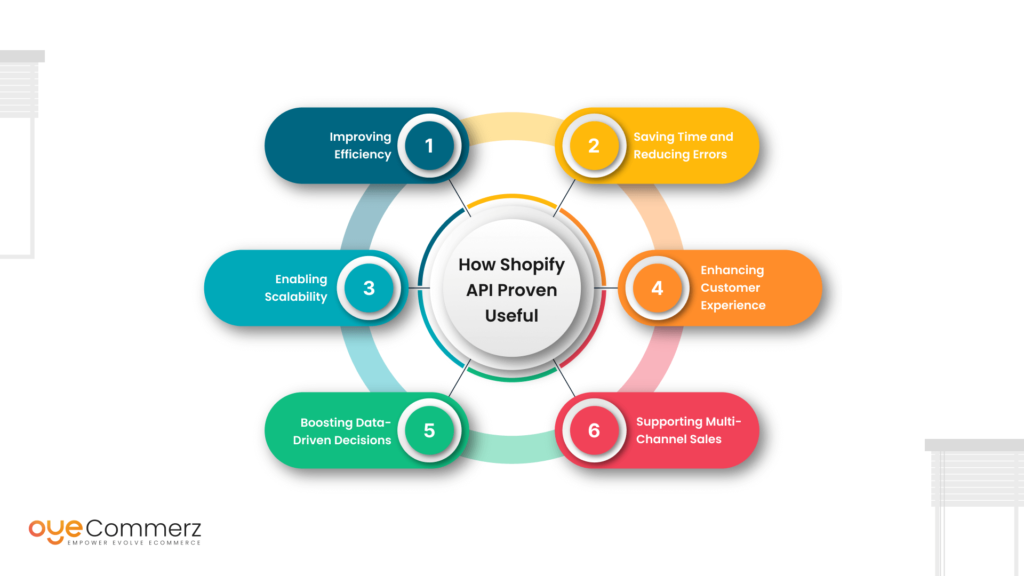
Implementing Shopify API integration can bring substantial benefits to your store by:
Improving Efficiency
Such elementary operations as stock management, order handling, or changing product details are some of the functions that APIs perform systematically. A recent study by MuleSoft revealed that 89% of IT leaders saw a surge in demand for API integrations, driven by the need to improve operational efficiency and automate repetitive tasks.
Saving Time and Reducing Errors
The traditional methods of data handling like recording data involving keying in usually result in errors being made. This is made easier through the API to automate these tasks hence saving your team several working hours.
Enabling Scalability
As the store develops, the management of operations becomes less feasible if done manually. APIs expand your business easily in that it connect various systems hence expanding your company’s capacity.
Enhancing Customer Experience
This integration can also be scenario-based like integrating your store with customer-facing applications including chatbots or customized loyalty programs.
Boosting Data-Driven Decisions
Using the Shopify API, users can incorporate various business tools related to real-time analytics to help inform a company’s choices.
Supporting Multi-Channel Sales
Through Shopify API, you can bring the data to inventory, orders, and customers and push through channels of selling such as Amazon, eBay, or retail stores.
Through realizing such benefits your business is in a position to adapt to growth-oriented strategies without struggling with operational challenges. And by mastering Shopify API integration, you unlock numerous benefits that can transform your eCommerce business. From automating inventory management to simplifying multi-channel selling, here are the top seven advantages of Shopify API integration.
7 Benefits of Using Shopify API Integration
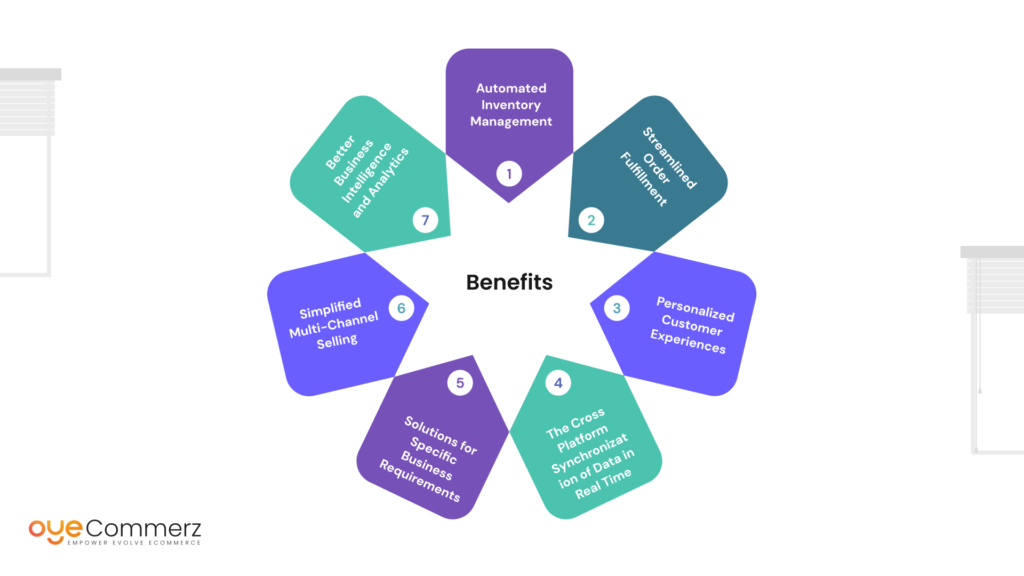
Let’s break down the top benefits of Shopify API integration in more detail:
1. Automated Inventory Management
Storing stocks of different products can be quite a challenge particularly if you have many platforms where they are usually kept. Shopify API has an effective inventory management section that can help you update your products’ stock, depending on the different sales channels. This does away with the problem of overselling, and eliminates the occurrence of out-of-stock situations, but provides real-time information about the stock level.
2. Streamlined Order Fulfillment
With enhanced Shopify connections, Shopify can be integrated with any services of fulfilment, for instance, 3PL providers, WMS, or shipping services. This makes order fulfilment fast, decreases the amount of work that may be done manually, and consequently, the chances of making errors. Improved and as well faster order completion implies high customer satisfaction and a low rate of returns.
3. Personalized Customer Experiences
APIs help to connect Shopify with CRM systems and marketing tools that contain the clients’ information, preferences, and previous purchases. With this data, you can create the best marketing campaigns and take the initiative to suggest certain products to certain customers. Thus, as personalization is gaining importance in eCommerce, the feature might be crucial in defining your brand.
4. The Cross Platform Synchronization of Data in Real Time
And for businesses that have multiple channels like websites, social media, and different marketplaces the synchronization of data is very important. It means that through Shopify API integrations, it is made sure that the products their prices, and other available quantities are synced in real-time with all platforms. It remains the only efficient way of avoiding cases of variation in the prices of the same products, or the failure to provide congruent information to the customers irrespective of the channel used in the shopping.
5. Solutions for Specific Business Requirements
It has to be realized that every establishment has specific requirements required for its functioning. Regardless of the level of your requirements, you may need to automate returns, create individual reports or manage intricate processes – Shopify API will always meet your needs. For instance, different patterns can be developed to address cases of subscription services, orders that are made in advance or orders that need special delivery rates.
6. Simplified Multi-Channel Selling
Selling in more than one selling platform has some operational challenges. Shopify API integration makes this process easy because it ensures that all the data are in one place and you can control all the sales channels. Amazon Lending allows sellers to offer products on Amazon, eBay, Facebook, Instagram, and many others without having to manually sync orders and inventory. This will allow you to spend more time on bringing your capability across the new markets ultimately boosting your store’s performance through REST API integration.
7. Better Business Intelligence and Analytics
Using Shopify API, businesses can also avail third-party tools required for tracking real-time analytics data. This includes customers’ behaviour and sales, as well as operation performance data and information. Real-time reporting helps in defining strategies to enhance profitability, analyzing an organization’s marketing mix, and exploring avenues for future growth.
Important Tips to Remember
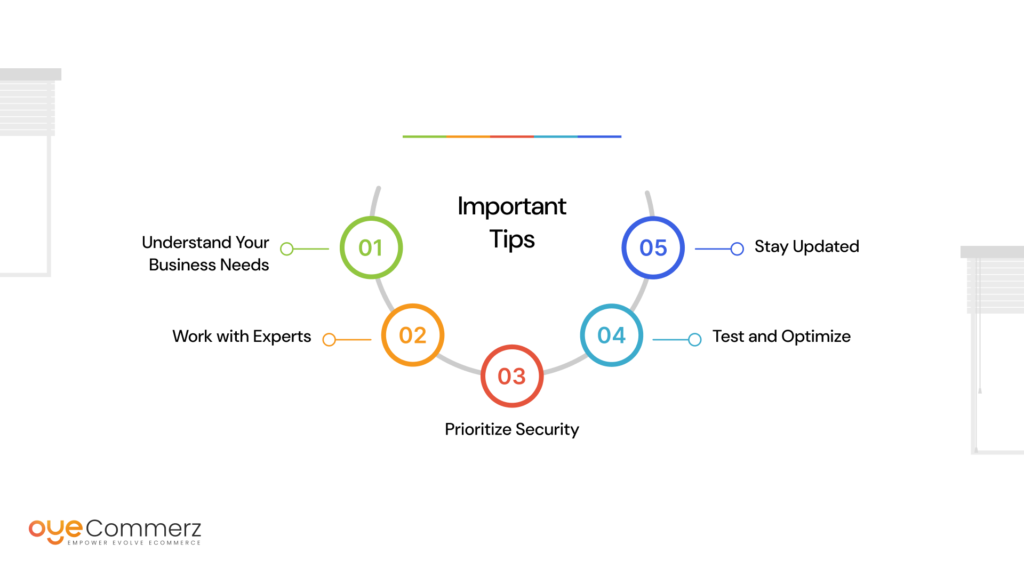
When integrating Shopify API into your business, here are a few important tips to keep in mind:
Understand Your Business Needs: In the pursuit of integrating a Shopify API solution, always identify your unique business requirement to know how the API integration will help to solve your problem.
Work with Experts: It is therefore clear that integrating one’s Shopify store with API needs to be done by a developer. You should advise getting help from developers or agencies that deal with Shopify API services to ensure that you undertake the integration properly and without unnecessary inconveniences.
Prioritize Security: The use of data connection between the Shopify store and third-party applications should always be taken a notch higher in terms of security. Make it so that API endpoints have to be authenticated and that the security of data has to be enhanced through encryption.
Test and Optimize: After setting up the integration, test it thoroughly to ensure all processes run smoothly. Regularly review and optimize your API integrations to ensure they continue to support your growing business.
Stay Updated: Shopify continuously updates its API features to introduce new capabilities and improve performance. Make sure you stay updated with these changes to take full advantage of new functionalities.
Transform Your eCommerce Business with OyeCommerz's Shopify API Integration Expertise
At OyeCommerz, we specialize in Shopify API services and advanced Shopify integrations tailored to your business needs. Our expert team can help you streamline operations, automate workflows, and create a personalized shopping experience that drives growth. Whether it’s automating inventory, enhancing customer engagement, or scaling your store, we have the expertise to make it happen. Don’t let operational hurdles hold you back
Contact OyeCommerz today and discover how Shopify API integration can transform your eCommerce business for the better!
Maximize efficiency with professional Shopify integration services
Conclusion
Integrating Shopify API into your eCommerce business offers unparalleled benefits, from streamlining operations to creating a more personalized customer experience. The flexibility and power of Shopify API features allow businesses of all sizes to unlock new opportunities and scale without the limitations imposed by manual processes or disconnected systems.
By leveraging advanced Shopify API integrations, you can build a cohesive, efficient, and data-driven business model that helps you stay competitive in today’s fast-paced eCommerce environment. Whether you’re looking to automate inventory management, enhance your multi-channel sales strategy, or improve customer engagement, the benefits of Shopify API integration are undeniable.

